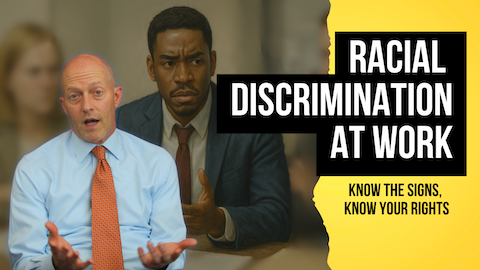If you need to pass a drug test to get hired, you may be concerned if you are taking medication to treat a disability. If you are using the drug legitimately, with a prescription and under the care of a physician, it should not prevent you from being hired, so long as you can show you can perform the essential functions of the job. But not all employers see it that way, according to a recent Americans With Disabilities Act (ADA) case involving a trucking company.
Job Applicant Punished After Doing What He Was Told to Do
John Lisotto was working as a South Carolina corrections officer in 2010 when he applied for work as a truck driver with New Prime, Inc. A recruiter for New Prime told Lisotto that he was approved to attend the company’s orientation in Missouri. Lisotto quit his job, traveled to the site, and submitted to a drug test in September. It was all downhill from there.
- Lisotto tested positive for an amphetamine, Dexedrine. He admitted using it; said it was for sleep problems he was having, believed to be narcolepsy (a condition that can cause a person to suddenly fall asleep without warning); and showed documentation from his physician.
- The company’s doctor, Dr. Abraham, told Lisotto that he could not drive a truck while on that medication. If he took another drug, Provigil, for six weeks without problems, then New Prime could hire him. Lisotto started taking Provigil and had no problems.
- Another New Prime doctor, Dr. Mauldin, told Lisotto that his doctor (Dr. Cook) had to contact him about the Dexedrine use in the next five days or he would report the positive test for amphetamines to the federal Department of Transportation (DOT), which would make it more difficult for him to be hired by another company. Cook stated that he tried to contact Mauldin a number of times but could not reach him. New Prime reported the drug test results to the DOT.
- In November, Lisotto contacted the recruiter to tell him that he had done as the company told him. He was taking the Provigil without problems. The recruiter informed Lisotto that New Prime could not hire him because he tested positive for amphetamines and hung up.
- Later that month, Lisotto sent a letter to Mauldin to try to straighten out the situation. Mauldin responded in January, saying that Lisotto was disqualified from the job not because of the Dexedrine but because of his narcolepsy.
- Lisotto had a sleep study done. The study revealed that Lisotto did not have narcolepsy. Rather, he had sleep apnea, an interruption of oxygen that disrupts sleep, causing him to be drowsy during the day.
- He informed Mauldin in May that he was being successfully treated for sleep apnea. As a result, he did not need any medications to stay awake and drive a truck. He asked New Prime to clear his name with the DOT.
- He got no answer. Because of the record of his positive drug test, other companies would not hire Lisotto. His financial situation declined, and he became homeless. Later, Lisotto obtained a job paying just over the minimum wage.
Lawsuit Dismissed at Trial Level
The Federal Motor Carrier Safety Administration (FMCSA), part of the DOT, has jurisdiction over interstate trucking. It has many safety regulations, including the drug testing of those applying for truck driving positions. It also includes a procedure governing how to resolve a dispute over medical issues between an applicant’s and a trucking company’s doctors.
Lisotto’s lawsuit claimed New Prime denied him a job and discriminated against him because of his disability, a sleep disorder. The trial court agreed with New Prime that the case was actually about the disputed doctors’ opinions. Since Lisotto had not used the FMCSA’s process to work it out, the court dismissed his case. Lisotto appealed.
Appellate Court Clears Away the Fog, Rules Case Must Proceed
The U.S. Court of Appeals for the Fourth Circuit ruled that the lower court had confused the issues. The basis for the problem was not a disagreement between doctors (because there was no disagreement). Rather, it was New Prime’s decisions and its reasoning.
- As long as Lisotto took proper medication for his narcolepsy, he appeared to be qualified, according to the doctors.
- The case focused on the company’s refusal to hire Lisotto based on his positive pre-employment drug test result and Mauldin’s actions concerning that test result.
- The complaint could “only be read to lodge an ADA claim” against New Prime based on its alleged conduct that led to its decision not to hire him, despite the fact that he provided documentation that his condition was under control because of the medication New Prime told him he had to use.
- Lisotto’s complaint asserted that the company violated the ADA because it failed to hire him as a result of his positive drug test, failed to accept Cook’s explanation for the drug test result, failed to continue the hiring process after receiving information that Cook provided and insisting that he change medications, reported the positive drug test result to DOT, and failed to correct the false drug test report that it made to DOT or others.
The appellate court sent the case back to the trial court for further proceedings.
Contact The Spiggle Law Firm for Legal Assistance
Under the ADA, an employer can test an applicant for use of illegal drugs. A positive test can be a legitimate reason to not hire someone. If you believe your prescription drug may result in a positive test result, you may want to disclose your prescription and be prepared to explain why you take it and what doctor advised you to take it.
After an employer makes a job offer, a company can require a candidate to pass a medical examination before starting work, as long as the medical exam applies across the board.
- The purpose of the exam is to determine whether you can perform the essential functions of the job with or without a reasonable accommodation.
- As part of that exam, you may be asked what prescription medications you are taking.
- If the employer does not hire you because you use a prescription medication and you file a lawsuit, the employer would have to prove that using the medication results in your inability to perform the essential functions of the job (with or without a reasonable accommodation) and/or that you would be a direct threat to the health and safety of others. (For example, if it makes you drowsy, you should not operate a forklift.)
- If it appears a potential employer may not hire you because of a prescription medication, find out what objections it may have, consult with your doctor to find out whether the company’s beliefs are reasonable and whether you could make any changes to allow you to get the job.
If a hiring decision is coming down to what medications you are taking, contact our office. We can confidentially talk about your medical condition, treatment, objections the employer may have, and the law and its application to your situation.





